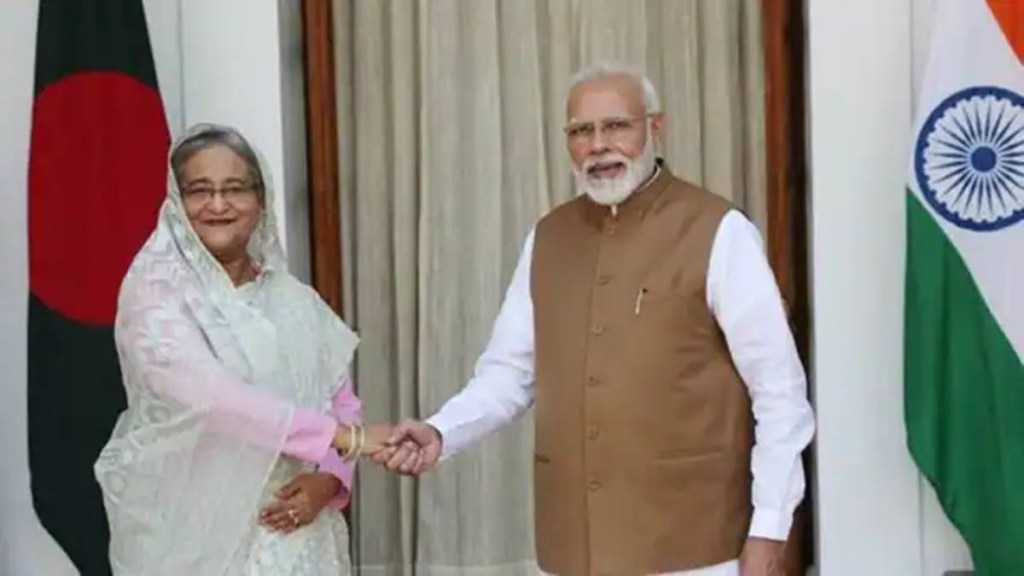The sudden resignation and flight of Bangladesh’s Prime Minister Sheikh Hasina amidst violent protests have thrust the country into a state of uncertainty. The turmoil has caught the attention of international and regional players, with significant implications for neighbouring India. The situation raises questions about the internal dynamics of Bangladesh and the external influences shaping its political landscape.
Background and Immediate Crisis
The recent events in Bangladesh have been marked by widespread protests, defying a national curfew, and storming the Prime Minister’s palace in Dhaka. The catalyst for these demonstrations was the anti-quota protests, which have been simmering despite a Supreme Court ruling against such quotas. The opposition parties, led by the Bangladesh Nationalist Party (BNP) and the banned Jamaat-e-Islami, have capitalized on the discontent, organizing a “long march” that has further destabilized the situation.
Expert View
Sharing his views with FinancialExpress.com, former Ambassador Anil Trigunayat, “Bangladesh is at a crossroads. The violence is fuelled by internal dissent, external interference, and a disgruntled political opposition and dissatisfied continues to create instability despite the fact that the basic issue of Quotas in government jobs already been addressed by the Supreme Court.
Impact on India?
“To be fair the government of Sheikh Hassina had opposed quotas on the first place. But multiple factors shoot ire at the establishment especially when politicised youth is roped in. India has always striven for stability, security and economic development of our friends in the neighbourhood and hopefully it will settle down in Bangladesh lest it will have some repercussions for India as well,” Ambassador Trigunayat states.
International Reactions and Diplomatic Dynamics
While India has termed the protests an internal matter and advised its citizens to avoid traveling to Bangladesh, other global powers have reacted differently. The US State Department’s call for upholding the right to peaceful protest and concerns about telecommunications disruptions highlight a strained relationship with the Awami League government. This tension is not new; it has been worsened by criticisms from the US and the European Union regarding the transparency of the recent elections in Bangladesh.
The strained relations between Prime Minister Hasina and the US date back to her first tenure. The assassination of her father, Sheikh Mujibur Rahman, and subsequent suspicions of international involvement have left a lasting impact on her approach to foreign policy. The US has been critical of the democratic processes under her rule, especially concerning her refusal to hold elections under a caretaker government, a demand from the opposition that was nullified by parliament in 2011.
Internal and External Pressures
The internal unrest in Bangladesh is compounded by external pressures. The US Ambassador to Bangladesh, Peter Haas, has been vocal about the need for inclusive elections, further straining relations. This friction has manifested in public statements by PM Hasina, accusing the US of meddling in Bangladesh’s internal affairs. Her recent remarks about a foreign nation’s alleged plans to establish a Christian state in the region reflect deep-seated mistrust.
Additionally, the economic and diplomatic ties between Bangladesh and the US have been rocky. While the US remains a significant investor, the political warmth between the two nations has waned. Hasina’s consistent targeting of Nobel laureate Dr Mohammed Yunus, a figure with strong connections in the West, exemplifies her government’s defensive stance against perceived foreign interference.
Implications for India
The current political turmoil in Bangladesh has significant implications for India. As a neighbouring country, India has a vested interest in the stability and security of Bangladesh. The rise of radical elements, the influx of refugees, and potential cross-border tensions are all concerns that India must navigate carefully. Moreover, India’s approach to the crisis will be closely watched by other regional players, such as China and Russia, who have thus far remained silent.
India’s diplomatic engagement with Bangladesh has been robust, marked by multiple visits from Hasina to New Delhi. However, the recent events necessitate a re-evaluation of India’s strategy. Ensuring a stable and friendly government in Dhaka is crucial for India’s regional security and economic interests.

